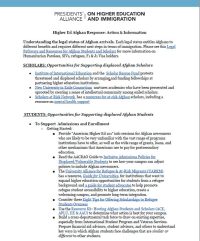Hosted on July 11, 2024 the training was delivered by Elly Miles, PhD, a senior research associate at the Urban Institute in the Center on Labor, Human Services, and Population; Hamutal Bernstein, PhD, a senior fellow at the Urban Institute and directs the Program on Immigration; Maki Park, a senior policy analyst for early education […]










